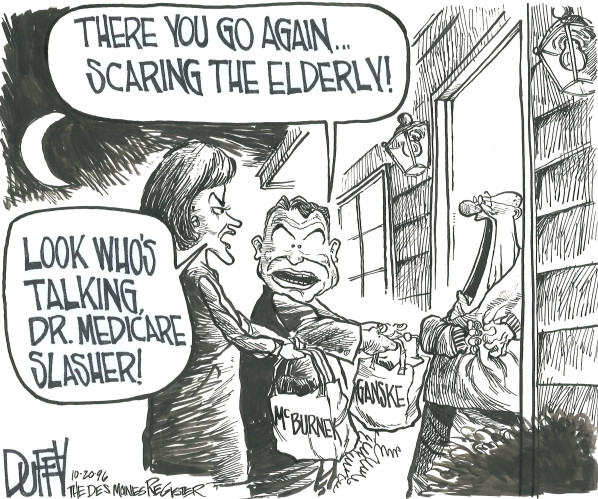How many of the issues of the 2012 presidential elections are new to our society? What did politicians and the media say about unemployment and social security in the 1930s, the 1970s, or the 1990s? Were the elections of the last century less divisive in their language than those of today? What guidance can the past give for the future? Here is a sampler of our exhibit “A Century of Un/Civil Discourse in Political Cartoons,” on view at the Iowa City Sheraton Hotel during the symposium on political discourse November 9-10, 2011.
Visit the symposium website at http://ppc.uiowa.edu/pages.php?id=278
Browse our online digital Des Moines Register political cartoons collection at http://digital.lib.uiowa.edu/dmrc/
The More Things Change…: Immigration, 1905
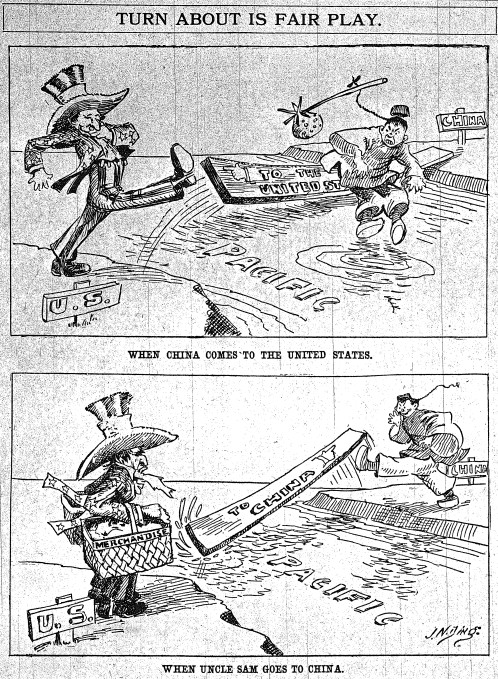
Rendered in the cartooning style of the 19th century, Darling’s observation that the exclusion of Chinese immigrants from the U.S. may ruin trade relations with that country rings true today, when China is seen by Americans as a conniving owner of U.S. debt, but also as a power whose intervention could help the world economy out of the recession.
Women and the Political Conversation, 1920
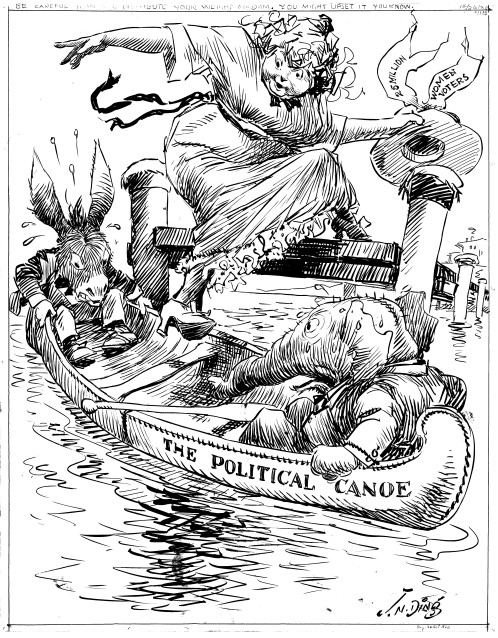
Darling’s cartoon masterfully captures the idea held during the culmination of the suffrage movement that women would vote as one bloc in electoral politics, and may fundamentally alter the balance between the major parties. Did this fear come true?
The More Things Change…: Recession, 1933
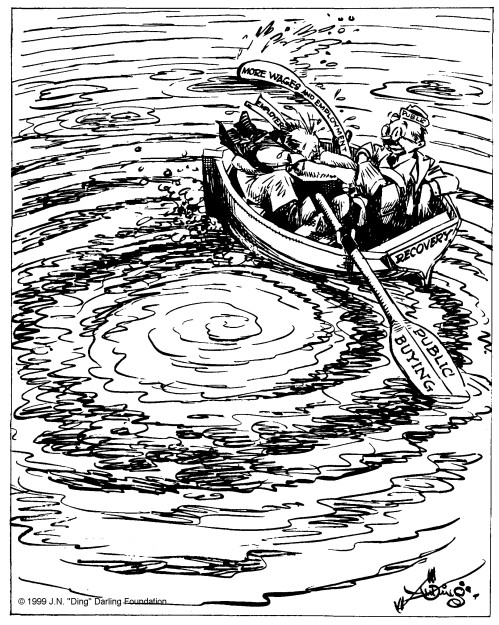
Historians now explain that the Great Depression was exacerbated by a dramatic drop in people’s willingness to buy goods. Through his cartoon, Darling argued that the road to recovery lay in combining the strikes of the oar of the government’s employment policies with an encouragement of John Q. Public to start buying again with his consumer paddle. This dynamic may be familiar from our own crisis of consumer confidence as a response to the collapse of the credit system.
The More Things Change…: Raising the Debt Ceiling, 1941
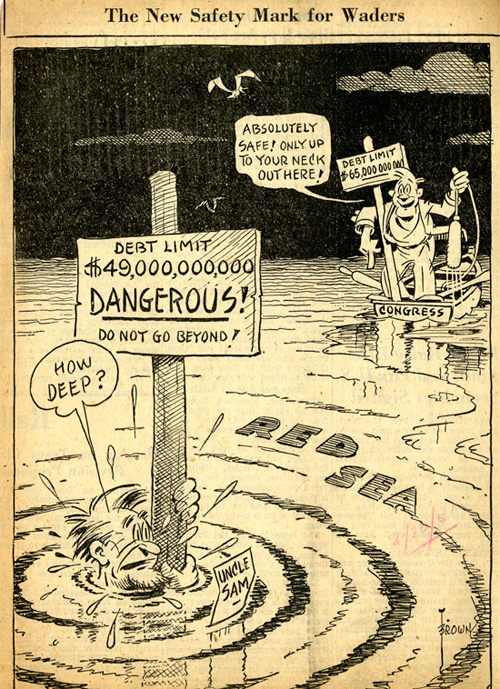
Brown’s cartoon cautioning Congress against raising the debt ceiling lest the whole nation submerge anticipated FDR’s fight with Capitol Hill two years later, in which the president had give up his plan of capping personal incomes with a tax in return for Congress raising the debt limit.
The More Things Change… Government that Governs, 1956
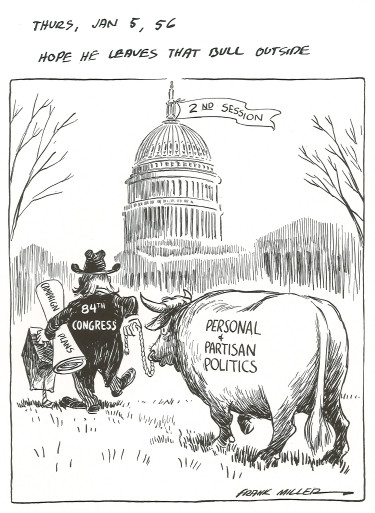
The More Things Change… Jobs, Jobs, Jobs, 1975
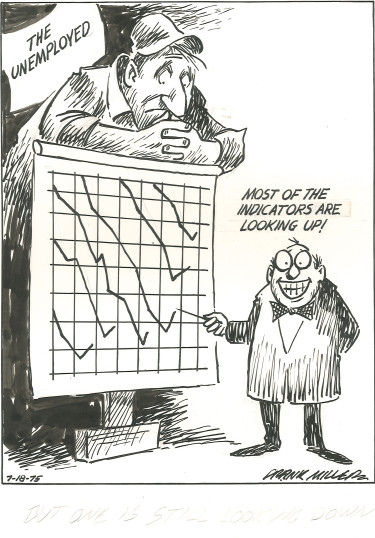
Women and the Political Conversation, 1972
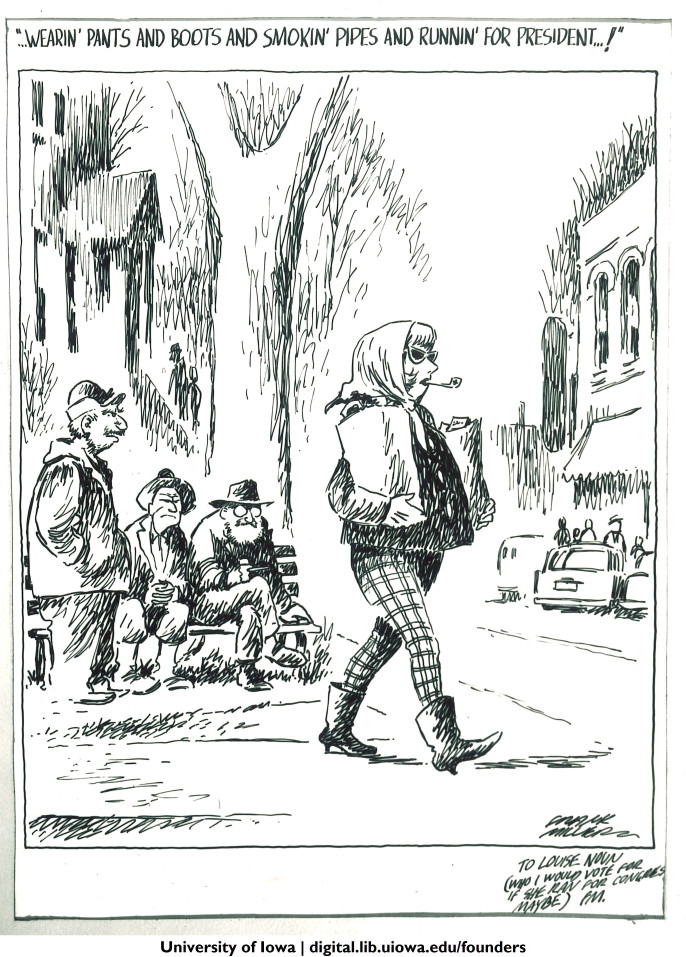
Frank Miller’s cartoon at the same time marked the historic occasion of Shirley Chisholm’s 1972 “Unbought and Unbossed” campaign, a black woman making a bid for the U.S. presidency, and poked fun at those in the Democratic Party and across the U.S. who social progress had passed by. Miller dedicated this copy to Louise Noun, co-founder of the Iowa Women’s Archive, who he considered worthy of voting for if she ever ran for office.
Un/Civil Discourse in U.S. Political Campaigns, 1984
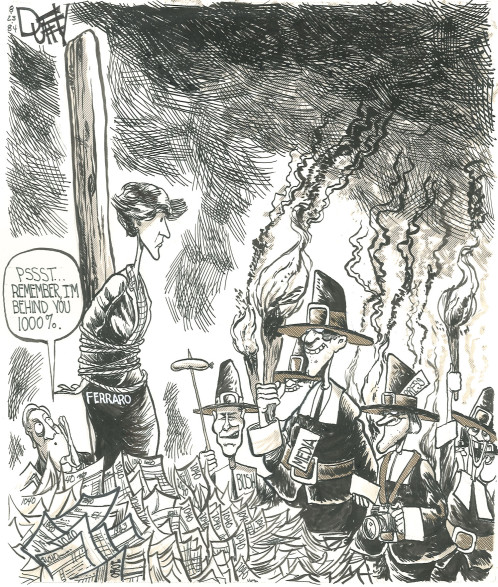
In the person of Democratic VP candidate Geraldine Ferraro, the 1984 presidential elections saw the first woman on a major party’s presidential ticket. By late August, Brian Duffy felt that her running mate Walter Mondale had abandoned Ferraro to the attacks of Republican VP candidate George Bush and the feeding frenzy of the media over her past campaign finances and tax filings.
Un/Civil Discourse in U.S. Political Campaigns, 1996
